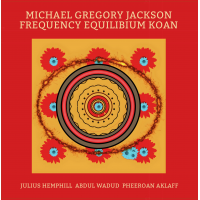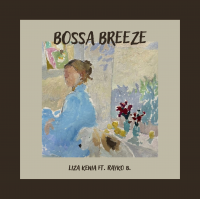Home » Jazz Musicians » Julius Hemphill
Julius Hemphill
Julius Hemphill - alto and soprano saxophone (1928 - 1995)
For over thirty-five years Julius Hemphill earned a reputation as one who broke down boundaries and defied labels. A prodigious composer who wrote luscious and shimmering sonorities with the ever-present tang of the blues, Hemphill was as comfortable writing for full orchestra as he was for his Sextet or Big Band. He composed for theater and multi-media productions and worked with some of this generation’s most acclaimed writers and choreographers who sought his unifying consciousness for collaborative projects. An improviser of immense talent and saxophonist who could coax the best out of any musical unit, Hemphill performed in almost every major jazz festival and hall in North America and Europe, including the Berlin, Montreal, Kool, Rome, Paris, Den Haag (North Sea), and Warsaw festivals.
Born in 1938, Julius Hemphill divided his attention between music and sports while growing up in the fertile musical environment of Fort Worth, Texas. He gained experience playing in local blues bands and jazz groups and began focusing on his musical career in earnest after moving to St. Louis in 1966. In 1968, Hemphill joined the Black Artists Group (BAG), playing an instrumental role in developing this interdisciplinary performance collective that included future World Saxophone Quartet members Oliver Lake (alto) and Hamiet Bluiett (baritone). In the early 70s, the composer recorded two albums, “Dogon A.D.” and “Coon Bid’ness,” that were later released on the Arista/Freedom label.
Hemphill moved to New York in 1973 to continue his dance on the edge of free jazz. In 1976, he became the founding member and principal composer/arranger for the World Saxophone Quartet"a four-horn band which proved that saxophones could swing and sing without the support of a rhythm section. Hemphill’s performances with the WSQ can be heard on “World Saxophone Quartet Plays Duke Ellington” and “Dances and Ballads,” recorded for Elektra/Nonesuch, as well as “Rhythm & Blues,” recorded for Elektra/Musician.
After leaving the World Saxophone Quartet in 1989, Hemphill devoted more of his time to collaborative multi-media projects and expanded his compositional palette. The Julius Hemphill Sextet was first featured in Hemphill’s Long Tongues: A Saxophone Opera, a multi-media composition with dancers, actors, and slide projections, built exclusively on instrumental music and loosely based on the history of the Bohemian Caverns Jazz Club from 1943 to 1968. Developed from an earlier collaboration with District Curators and Malinke Robert Eliott, the work received its world premiere in Washington D.C. in 1989 and its New York premiere at the Apollo Theater in 1990.
Read moreTags
Julius Hemphill, Nels Cline and Eberhard Weber

by Jerome Wilson
I have been having temporary difficulties in uploading my recent radio shows. While I work on that, here is a program from July 27, 2021, that features the usual wide variety of musicians. This show includes Julius Hemphill, Nels Cline, Brian Woodruff, and Eberhard Weber. Playlist Henry Threadgill Sextett “I Can't Wait To Get Back Home" from The Complete Novus & Columbia Recordings of Henry Threadgill & Air (Mosaic) 00:00 Cathlene Pineda “Carriers II" from Rainbow Baby (Orenda) ...
Continue ReadingThe Boyé Multi-National Crusade For Harmony

by Stefano Merighi
Che trionfo per Julius Hemphill! A dispetto delle poche pagine--o righe--che le recenti storie del jazz dedicano al maestro di Fort Worth, Hemphill emerge da questo cofanetto di inediti come sassofonista-improvvisatore-compositore tra i più profondi della musica afroamericana nei decenni compresi tra gli anni '70 e '90. E questa preziosa edizione non solo torna a far luce su repertori e organici già conosciuti dai cultori, ma porta in superficie una gran mole di musica fresca, sorprendente, che ...
Continue ReadingJulius Hemphill: The Boyé Multi-National Crusade For Harmony

by Mark Corroto
There is something inherently objectionable when a billionaire acquires an artistic masterpiece by say, Leonardo DaVinci or Claude Monet, only to sequester it from public view. You might feel the same about Julius Hemphill's recordings Dogon A.D. (Mbari, 1972) and 'Coon Bid'ness (Arista/Freedom, 1975). Both five star recordings, now out of print, cost a small fortune to acquire. Years ago saxophonist Tim Berne, a disciple of Hemphill, endeavored to rescue the saxophonist's Blue Boyé (Mbari, 1977) by rereleasing it in ...
Continue ReadingMichael Gregory Jackson: Frequency Equilibrium Koan

by Troy Dostert
One of the undersung elder statesmen of the jazz avant-garde, guitarist Michael Gregory Jackson played a vital role in the burgeoning loft scene of the 1970s, where his work with Oliver Lake was especially noteworthy. On albums like Lake's Holding Together (Black Saint, 1976) and Zaki (hatOLOGY, 1979), Jackson brought a deep reservoir of influences, not the least of which was a rock/R&B sensibility that he would later develop in more pop-oriented directions during the 1980s and '90s, a shift ...
Continue ReadingJulius Hemphill, William Parker, Charles Lloyd, Sam Rivers & More New Releases

by Ludovico Granvassu
This week we focus our attention on two fundamental box-sets and a slew of live recordings the synchronicity of whose release draws the spotlight on musicians who were at the center of the legendary Loft Scene (from Julius Hemphill to Sam Rivers, Michael Gregory Jackson and JuJU), as well as on some of those musicians who have been keeping the loft scene's spirit alive (William Parker, Tim Berne and the Italian-Danish band On Dog). The latest albums by Charles Lloyd ...
Continue ReadingDogon and Friends

by Patrick Burnette
The boys look at three recent releases including a vocal-focused celebration of Canada, a two-hander by composers of children's television soundtracks and a Swedish flutist upset with the political tides of the last few years. After a spirited, if dispiriting, discussion of jazz as “protest music" propers get paid to a pivotal recording of avant-funk-folk jazz by a co-founder of the World Saxophone Quartet. Finally, Brad Mehldau's flirtation with Bach gets a look-in during a very high-brow pop-matters segment.
Continue ReadingJulius Hemphill / Peter Kowald: Live at Kassiopeia

by John Sharpe
Julius Hemphill / Peter KowaldLive at KassiopeiaNo Business Records2011 Out of the blue comes this double disc set featuring two distinguished alumni, both sadly now departed, of two parallel streams of musical pioneering. German bassist Peter Kowald was one of the authors of European free improvisation. Though initially in the shadows of his more assertive compatriots, saxophonist Peter Brotzmann and pianist Alexander von Schlippenbach, he came into his own through giving full ...
Continue ReadingJulius Hemphill - Dogon A.D. (Arista/Freedom 1972, 1977; International Phonograph, 2011)

Source:
Music and More by Tim Niland
The Dogon tribe of Mali made an amazing discovery: they somehow knew without the aid of a telescope that the Dog Star Sirius had a small companion star, invisible to the human eye, a fact that wasn't verified by astronomers until the 1970's. Much like that mystery is this extraordinary album by saxophonist and composer Julius Hemphill, accompanied by Baikida E.J. Carroll on trumpet, Abdul Wadud on cello and Philip Wilson on drums. This beautifally enigmatic album has drifted in ...
read more
STLJN Audio Archive: Julius Hemphill - Dogon A.D.

Source:
St. Louis Jazz Notes by Dean Minderman
This week's Audio Archive spotlights a recording that's generally acknowledged by jazz musicians, fans, critics and scholars as being of major significance, yet somehow has remained mostly out of print for more than 30 years. Saxophonist and composer Julius Hemphill recorded Dogon A.D. in February, 1972 at Oliver Sain's Archway Studios on Natural Bridge Rd in north St. Louis. In addition to Hemphill on saxophone and flute, the musicians included Abdul K. Wadud on cello, Baikida Carroll on trumpet, and ...
read more
Composer Portrait: Julius Hemphill Bobby Zankel's Warriors of the Wonderful Sound Featuring Marty Ehrlich

Source:
All About Jazz
Ars Nova Workshop presents: Tonight! Thursday, February 26, 7:30pm (doors at 6pm) Composer Portrait: Julius Hemphill Bobby Zankel's Warriors of the Wonderful Sound Featuring Marty Ehrlich Marty Ehrlich, alto saxophone; Bobby Zankel, alto saxophone; Elliott Levin, tenor saxophone; Dan Peterson, reeds; Dan Scofield, alto saxophone; Bryan Rogers, tenor saxophone; Bart Miltenberger, trumpet; Adam Hershberger, trumpet; Patrick Hughes, trumpet; Tom Madeja, trumpet; Larry Toft, trombone; Dan Blacksberg, trombone; George Barnett, French horn; Adam Lesnick, French horn; Matt Davis, el. ...
read more
Notes from the 'Net: Inside the Kind of Blue Sessions, a Julius Hemphill Tribute, New CDs, Interviews, Reviews, and More

Source:
St. Louis Jazz Notes by Dean Minderman
Proving that you can't keep a good recurring feature down, we once again bring you Notes from the Net, a compilation of short news bits related to musicians from St. Louis, musicians who will soon visit (or have recently visited) the Gateway City; and assorted other items of interest. The plan this time is to try to make NFTN a more-or-less regular Sunday feature, providing material suitable for perusal during either idle weekend hours or Monday morning's coffee break. And ...
read more




































